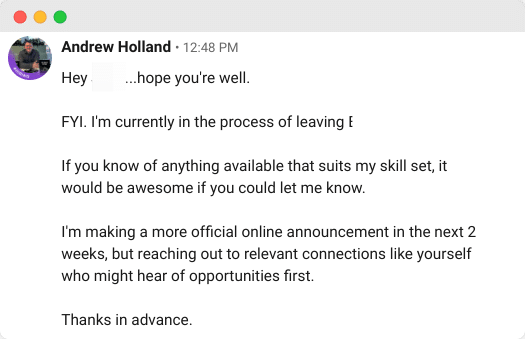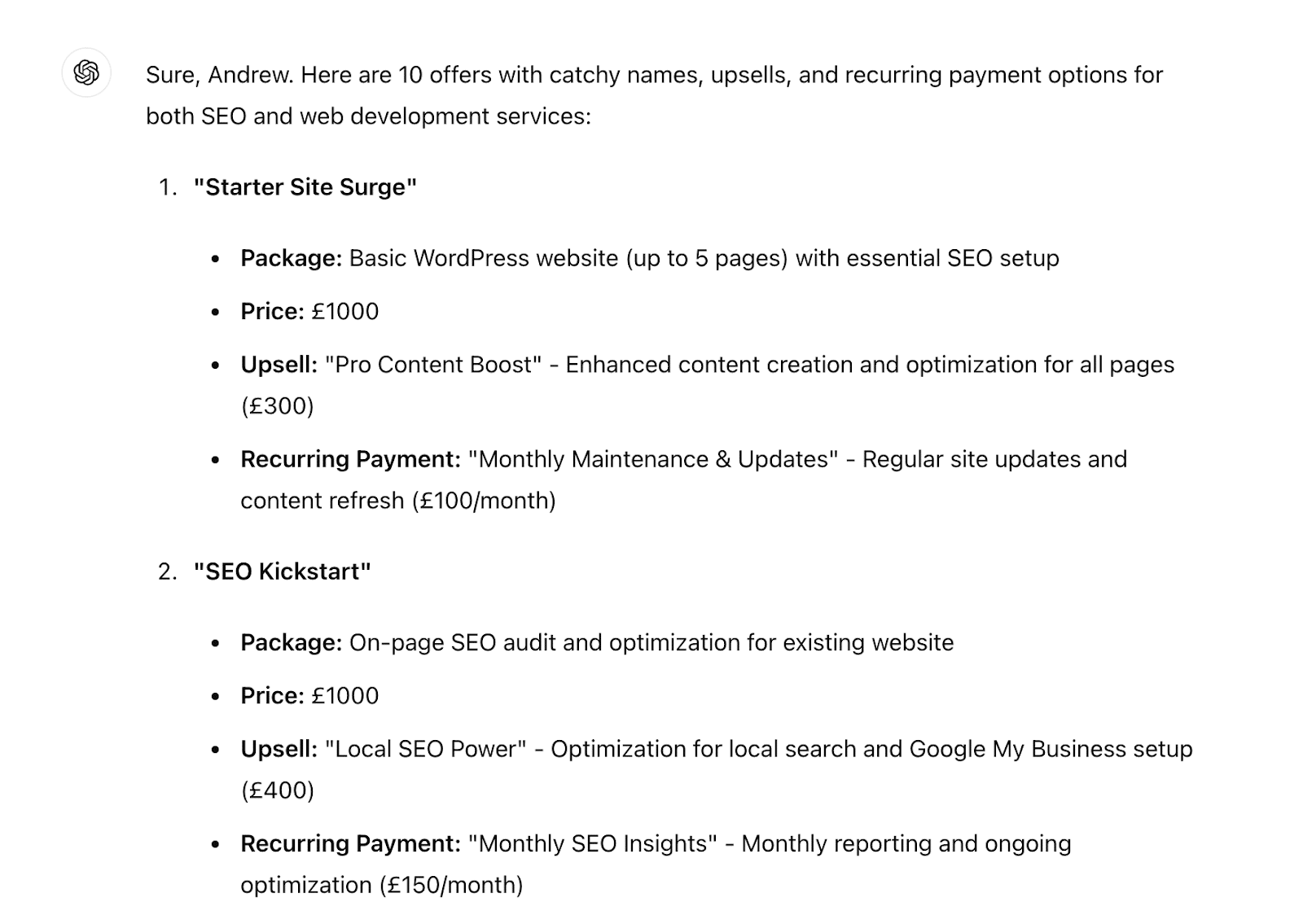
Losing your job in SEO can happen for various reasons, such as redundancy, a shift in the company’s focus or performance issues. However, the reason doesn’t change the outcome.
What you need now is a well-crafted, step-by-step plan to not only survive but thrive in this situation. Here it is.
The SEO reality check you need to take
In May, my friend Nick LeRoy, who runs SEOJobs.com, wrote an article that shocked a lot of people in the SEO world.
The article’s first line raised a question, followed by a sobering thought: “Is SEO Truly Dying? SEO job listings are down -37% in Q1 of 2024 compared to 2023.”
A 37% reduction in job roles is a staggering difference.
We live in a tough economic time, and SEO is a growth marketing tactic, not a survival one.
Brands investing in SEO are doing so as part of a long-term plan to increase revenue for their business. However, in the current tough economic situation globally, growth is not on the minds of many businesses; survival is.
In addition, the recent Google algorithm updates have negatively affected thousands of websites in the publishing sector.
The reality check you need to take is a simple one.
SEO jobs are fewer.
This means that more SEOs are fighting for fewer roles, and we will lose many of them as they leave the industry.
There simply aren’t enough SEO roles to support an industry that surged thanks to a post-COVID boom in digital marketing demand.
And this is part of the issue.
Post COVID, we saw a huge rise in demand for SEO and related services as people realized the importance of digital marketing.
This saw a rise in agencies, fast growth for many and massive salary inflation.
However, a large part of this boom was that governments printed money to stay afloat, and people sat at home and spent their money online.
Today, things are different.
All of this is a nice way of saying, “It’s not your fault.”
And here we come to the first choice you need to make.
Are you going to stay in SEO?
People are often shocked to learn that I have only been a professional SEO for nine years. I’m 45 and spent 20 years of my life in the police.
This is my second career, and considering that the government will probably make me work into my 70s (unless I get filthy rich), I have become comfortable with the fact that I will likely have several other careers before that time.
Search engines of the future will not be the search engines of today.
SEO (as we know it) will probably not exist at all.
If you need a job in SEO, your first decision needs to be whether you want to stay in this business.
Or do you take this as an opportunity to reinvent yourself and your career?
You can reinvent yourself. I did it.
The day I left the police, I built a business from scratch that replaced my income in days.
And it wasn’t SEO.
I wrote blog posts, built websites, ran social media accounts… I did it all.
So, you should take a few days to consider what you want to do.
Is it time to make a shift?
If it is, then this would probably be where we went into a different article entirely.
But we’re going to focus on getting you back into SEO.
So, let’s build that plan.
Dig deeper: The SEO career path: What it may look like and how to level up
To freelance or not to freelance?
Freelancing can be a wonderful option for many in SEO.
It gives you absolute freedom and can save you a lot of money.
No commute to an office. You can also be more tax efficient if you set up your business as a company.
But you need to build up your clients, which can be hard.
Freelancers generally charge less than agencies, and clients know this. Many people hate hiring agencies and seek freelance support because they won’t be tied into a contract.
But this can lead to a feast or famine approach as a freelancer.
Today, you have work. Tomorrow you don’t.
That can be the freelance life.
This is why so many freelancers are so active on social media. Because it lands them work.
Now, the thing is, you might have to freelance for a while before you land your next SEO role.
So, be prepared to set up freelance profiles for work on the usual freelance sites.
The more, the better.
But I want to focus on getting a job in SEO. Freelancing is great, but making money is a priority when you have bills and money leaving your bank.
So, let’s get back to it.
Update your CV and LinkedIn profile
This is kind of obvious, so I won’t dwell on it. Update your CV and LinkedIn profile.
If your CV includes links to work websites or social channels such as LinkedIn, ensure the links work.
Dig deeper: LinkedIn SEO guide: Optimizing your profile for more connections, better leads
Draw a timeline
You’ll need to set up a timeline based on your notice period.
If you have four weeks to find a new role, this will be tough, and you’ll have to make every day count.
With a two- or three-month notice period, you have more time and options.
However, if you have less time, such as a week (which can happen during redundancy or a probation period), you must make every hour count.
I suggest a timeline because there comes a point when you need to decide what route you’ll take. And how furiously you reach out to people.
I’ll also add this. Be prepared to walk away from marketing for a time.
My friend worked in a warehouse for nearly a year before landing his next marketing job.
Should you announce it?
We’ve all seen it. The social post announcement on X or Linkedin, where people tell others they are in the market for a new job.
We also see the ones where people are “starting to freelance,” and we equally know that it is possible that they lost their jobs and are now trying to start on their own.
If you are going down the freelance route, then announce it.
But I believe that if you are looking for a job, I have two views.
If your timeline is small (i.e., a week or a month), announce it.
Every day and hour counts.
But if you have longer, then don’t.
There are a few reasons for this, but when you announce you’re in the market, people know your exit will likely not be one you control.
This is you saying, “I have no job. Can you help?”
If you have many connections, you’re bound to receive two things: messages of support and people wanting to know what has happened.
As great as these messages are, you should focus on getting a new job, not having your inbox full of goodwill and questions.
There are pros and cons to this, but you never lose the ability to announce that you’re in the market for a job.
And if you have time on your side, make it count in your favor.
Recruiters: Your first call
There are now some specialist recruiters in SEO, such as SEO For Hire. And yes, you should make a specialist agency your first call.
The reason is that these have already built up specific connections with people looking for SEOs.
Next, make a list of local and large city recruitment agencies that you can call.
They might have vacancies, but they might not.
This is why we did the CV first; they’ll want you to send yours.
Message connections
This is where you reach out to as many key connections as possible on LinkedIn to get the ball rolling.
Here’s the message I used when I was in the market for a new job.

I advise starting with people you know physically and then moving to online connections.
Agency owners, heads of HR and heads of departments are people to message.
The aim here is to tell people that you’re now in the market for a job, and the next move is up to them.
You don’t know what’s going on inside their business.
- Issues with current staff.
- They landed a big client last week.
- They just had someone resign.
This is why you should reach out to as many as you can.
It’s also why you should keep your social profiles active.
Posting online is a small safety net as it gets you on the radar of others in your sector.
Use job sites
Job sites are great, but when you use these, you lose the advantage of connection.
If you use recruiters or leverage your network, you have the advantage of people speaking with you and learning who you are and what you do, think and speak like.
This gives you an advantage.
Now, I’m not saying don’t apply for roles.
You’ll need to move quickly in your first few days, and you might find a perfect job.
Several specialist SEO job sites list the roles, and many SEO newsletters post roles they know exist.
Dig deeper: The latest jobs in search marketing
It didn’t work – what next?
For whatever reason, perhaps time or just a lack of luck, you have run out of road, and now, next month, you have no income.
This is not a great situation to be in.
Firstly, as I’ve said earlier, you might need to do something other than marketing for a while.
However, there is another route.
Audit your skills
Go through your skills and break them apart.
For example, my list would look like this:
- Website building
- SEO
- Social media marketing
- Newsletter building
- Copywriting
- Marketing
- Blog writing
- Graphic design
- YouTube marketing
- AI
- Prompt writing
Make a list and then start building some offers.
For example, I might create an offer such as “Website for $1,000, SEO for free.”
I might offer to build websites for $1,000 and then offer the basic SEO for that site for free.
Yes, this is cheap, too cheap. But that’s the point.
It’s an offer too good to say no to.
You can offer several low-cost, high-value offers and reach out to people.
Remember, when you reach out, you need to give them a reason behind your offer.
An example could be:
“Hi, I’m one of the most experienced digital marketers in the UK. I recently left a seven-figure agency to start my own business.
To celebrate, I’m offering deals on my services that would normally be charged at a far higher rate.
I’ve noticed that your (insert the problem they have).
Well, I can sort that out for you (insert fee and offer).
If you’d like to chat more, then let me know.
And here’s a link to some examples of my work.”
That message needs work, but it’s where you can start.
Build your offer and reach out to people next.
However, ask for 50% deposits upfront to build trust and cash flow. Or, in a service-based business, ask to be paid in advance.
If this kind of thing is not what you’re used to, that’s fine. You don’t have to do this. But if it is and you are struggling with offers, head over to an AI tool and use a prompt like this:
“I’m trying to launch my own freelancer business selling websites and SEO services. List some offers and package titles that would be good to pitch. Make the offer catchy and think of upsells and side sells we can offer once we’ve pitched. List me 10 offers that are low priced but high value and provide the name of the offer, the upsell and a recurring payment option for both SEO and web development services and suggested prices for each service, starting at £1,000.”
Here’s what I got:

This is just an idea.
You can change it, alter it and adapt it to your needs and skills.
Look, no one wants to be in the situation where we are unemployed.
It is a vile place to be.
If you’re here right now, what matters is that you take some time to think.
This might take an hour or a few days, depending on your situation.
But once you’ve had that time to think.
Now is the time to act.
Dig deeper: Will AI replace SEO professionals?
source https://searchengineland.com/lost-seo-job-emergency-handbook-443132

0 Comments